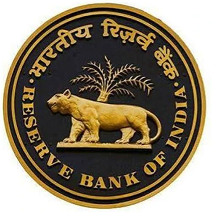
(Photo : rbi.org.in)
- RBI Governor Shaktikanta Das expressed confidence in the robustness of the Indian economy amidst global uncertainties.
- India's foreign exchange reserves stand at about $675 billion, providing a substantial buffer against global economic shocks.
- Despite a rise in inflation, Das expects the country's inflation to moderate over time, with the RBI's prudent monetary policy helping keep the price spiral in check.
- The RBI's proactive measures, coupled with the inherent strengths of the Indian economy, are expected to ensure stability and strength in the face of any adverse global events.
In a recent address at the launch of the Kochi International Foundation, Reserve Bank of India (RBI) Governor Shaktikanta Das expressed confidence in the robustness of the Indian economy amidst global uncertainties. He emphasized that the Indian economy is well-equipped to handle any adverse fallout from global events, painting a picture of stability and strength.
The Governor's remarks come at a time when the world is grappling with economic shocks triggered by various global events. However, Das's confidence in the Indian economy's resilience is backed by several key indicators.
India's Economic Indicators: A Picture of Strength
Das pointed out that the country's external sector is robust, and the current account deficit (CAD) has remained within manageable limits. The CAD currently stands at 1.1 per cent of GDP, a significant improvement from the range of six to seven per cent in 2010 and 2011. One of the key pillars of this economic strength is India's foreign exchange reserves, which are among the largest in the world.
The reserves stand at about $675 billion, providing a substantial buffer against global economic shocks. This is a significant increase from the foreign currency assets, which were at USD 585.383 billion for the week ended November 8.
Inflation and Monetary Policy: The Elephant in the Room
Inflation, often seen as a barometer of economic health, was another topic addressed by Das. Despite a rise in inflation to 6.2 per cent in October from 5.5 per cent in September, primarily due to food inflation, Das expects the country's inflation to moderate over time. He humorously referred to inflation as an elephant in the room, stating, Now the elephant has gone out of the room for a walk, then it will go back to the forest.
The Governor also highlighted the RBI's role in managing inflation during the Ukraine war. While inflation rose in many countries, the RBI's prudent monetary policy helped keep the price spiral in check.
RBI's Transformational Change in Credit Delivery
He emphasized that the RBI refrained from printing notes, a strategy suggested by some during the ongoing pandemic, as it could exacerbate the problems they were trying to resolve. Instead, the RBI maintained the interest rate at 4 per cent, facilitating a smoother economic recovery. Das also underscored the RBI's efforts to bring about a transformational change in credit delivery, particularly for small entrepreneurs and farmers.
The Unified Payments Interface (UPI) and the recently launched Unified Lending Interface (ULI) are expected to revolutionize the credit landscape in India.









